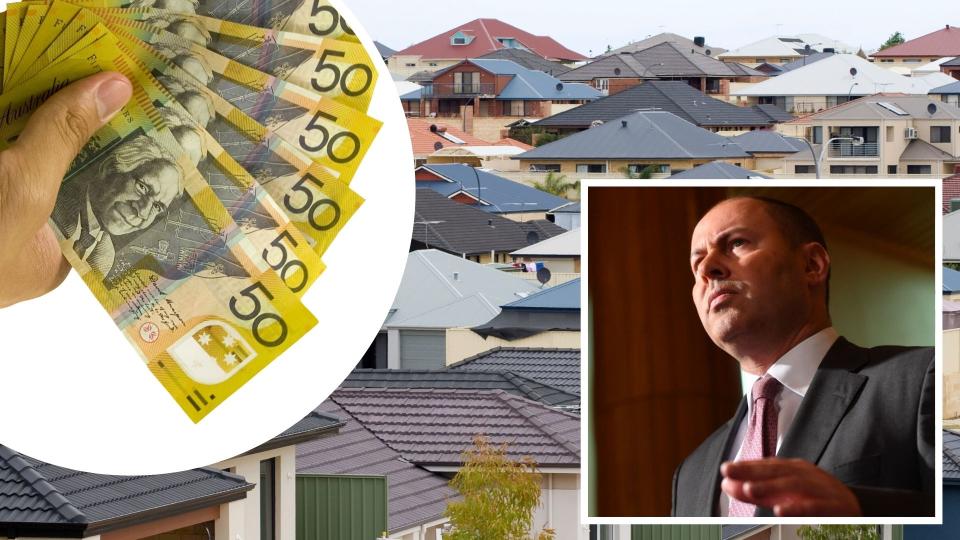Budget update: Winners and losers

The Australian government has announced a jaw-dropping net debt of $488.2 billion in today’s major economic update, along with its plan for recovery.
The government expects deficits of $85.8 billion for 2019-20 and $184.5 billion in 2020-21.
Federal Treasurer Josh Frydenberg revealed plans to extend access to superannuation and invest in several major infrastructure projects days after adding $16 billion to the budget deficit through the JobKeeper and JobSeeker extensions.
Winners
JobKeeper recipients
JobKeeper payments will be extended until March 2021, albeit at a lower rate, the government confirmed on Tuesday. The payment is set at $1,500 a fortnight until the end of September. Then, from September to January it will be split into two tiers.
Full-time workers will receive subsidies of $1,200 per fortnight. Those working 20 hours or fewer will receive $750.
From January to March, full-time workers will receive $1,000 per fortnight and those working 20 hours or fewer will receive $650.
Aussies wanting access to their superannuation
The government announced that Australians hoping to access their superannuation early will have more time to apply. Now, the application period has been extended from 24 September to 31 December 2020.
Small businesses
The government will extend the Covid-19 SME Guarantee Scheme until 30 June 2021, allowing businesses to access these loans until this deadline. Around 15,600 businesses have already accessed $1.5 billion in loans.
In its statement, Treasury said it will also make “targeted amendments” to ensure the loans remain suitable.
Up-skillers
The government will establish a $1 billion JobTrainer Fund designed to provide more low and no fee training spots for job seekers and school leavers. This will be paid jointly by the federal and state governments, as was announced earlier this month.
The wage subsidy targeting apprentices and trainees will also be extended for another six months to 31 March at a cost of $1.5 billion. This subsidy covers businesses employing up to 200 workers now.
Regional economies and dented industries
Bludgeoned by summer’s horrific bushfires and the following coronavirus pandemic, Australia’s regional communities will be able to access a $1 billion Covid-19 Relief and Recovery Fund.
This fund is targeted at the regions and communities most affected by the virus, including the aviation, tourism and arts sectors.
Zoos and aquariums
Zoos and aquariums - including those in regional Australia - will be able to access $94.6 million in funding.
Engineers and tradies
The government said it will “continue to deliver” on its $100 billion transport infrastructure pipeline.
“The government will provide $2.0 billion over three years from 2020-21 for priority regional and urban transport infrastructure across Australia to support local jobs and economic recovery post COVID-19. This includes $1 billion for shovel-ready projects and $500 million for targeted road safety works,” it said.
Losers
Josh Frydenberg’s surplus dreams
Just seven months ago, the treasurer was riding high on a forecasted surplus of $5 billion. That would have been the first surplus in 11 years.
However, rather than finally delivering on the promise made in April 2019 to have the budget “back in black” and Australia “back on track”, Frydenberg has confirmed a net debt of $488.2 billion. That’s 26 per cent of GDP.
That’s an “eye-watering” amount, he said on Thursday morning.
The Australian Tax Office
Government spending is up and tax receipts are significantly down. Frydenberg today confirmed tax receipts are down $31.7 billion in 2019-20 and $63.9 billion in 2020-21.
Ineligible JobKeeper recipients
While the JobKeeper extension will provide support for struggling businesses, it will be cold comfort to those kicked off the payments. Under the new eligibility conditions, businesses need to prove consecutive quarterly falls in turnover of at least 30 per cent.
The tiered structure also means workers who received an inadvertent pay rise won’t receive that anymore. One-in-four recipients were receiving an average pay rise of $550 a week under the current scheme.
JobSeeker recipients
JobSeeker recipients will also need to meet tougher eligibility requirements, the government confirmed on Tuesday while the Coronavirus Supplement will be cut. That means Australians receiving $1,116.70 per fortnight will receive $815.70 from September onwards.
Hopes for a sooner income tax cut
Predicted income tax cuts being pulled forward did not eventuate. Frydenberg foreshadowed this move earlier in July, saying the government was “looking at the timing of those tax cuts”. However, there is no mention of fast-tracked tax cuts in today’s economic update.
Tax cuts currently scheduled to take place in the 2022 financial year will see the 19 per cent tax rate threshold increased from $41,000 to $45,000. Additionally, the 32.5 per cent threshold will be increased from $90,000 to $120,000.
The following stage of the cuts is due to come into effect on 1 July 2024 and will see all Australians earning between $41,000 and $200,000 pay a flat rate of 32.5 per cent.
Frydenberg will announce the 2020-21 budget on 6 October 2020.
Want to take control of your finances and your future? Join the Women’s Money Movement on LinkedIn and follow Yahoo Finance Australia on Facebook, Twitter and Instagram.

 Yahoo Finance
Yahoo Finance 
